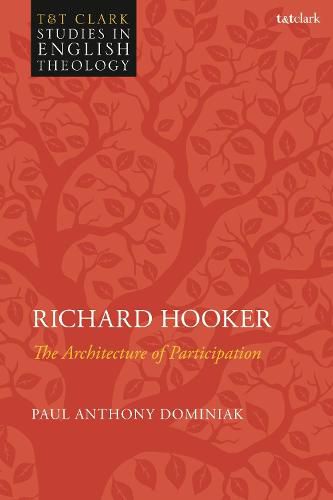Readings Newsletter
Become a Readings Member to make your shopping experience even easier.
Sign in or sign up for free!
You’re not far away from qualifying for FREE standard shipping within Australia
You’ve qualified for FREE standard shipping within Australia
The cart is loading…






Richard Hooker’s Of the Laws of Ecclesiastical Polity has long been acknowledged as an influential philosophical, theological and literary text. While scholars have commonly noted the presence of participatory language in selected passages of Hooker’s Laws, Paul Anthony Dominiak is the first to trace how participation lends a sense of system and coherency across the whole work.
Dominiak analyses how Hooker uses an architectural framework of ‘participation in God’ to build a cohesive vision of the Elizabethan Church as the most fitting way to reconcile and lead English believers to the shared participation of God. First exploring Hooker’s metaphysical architecture of participation in his accounts of law and the sacraments, Dominiak then traces how this architecture structures cognitive participation in God, as well as Hooker’s political vision of the Church and Commonwealth. The volume culminates with a summary of how Hooker provides a salutary resource for modern ecumenical dialogue and contemporary political retrievals of participation.
$9.00 standard shipping within Australia
FREE standard shipping within Australia for orders over $100.00
Express & International shipping calculated at checkout
Richard Hooker’s Of the Laws of Ecclesiastical Polity has long been acknowledged as an influential philosophical, theological and literary text. While scholars have commonly noted the presence of participatory language in selected passages of Hooker’s Laws, Paul Anthony Dominiak is the first to trace how participation lends a sense of system and coherency across the whole work.
Dominiak analyses how Hooker uses an architectural framework of ‘participation in God’ to build a cohesive vision of the Elizabethan Church as the most fitting way to reconcile and lead English believers to the shared participation of God. First exploring Hooker’s metaphysical architecture of participation in his accounts of law and the sacraments, Dominiak then traces how this architecture structures cognitive participation in God, as well as Hooker’s political vision of the Church and Commonwealth. The volume culminates with a summary of how Hooker provides a salutary resource for modern ecumenical dialogue and contemporary political retrievals of participation.